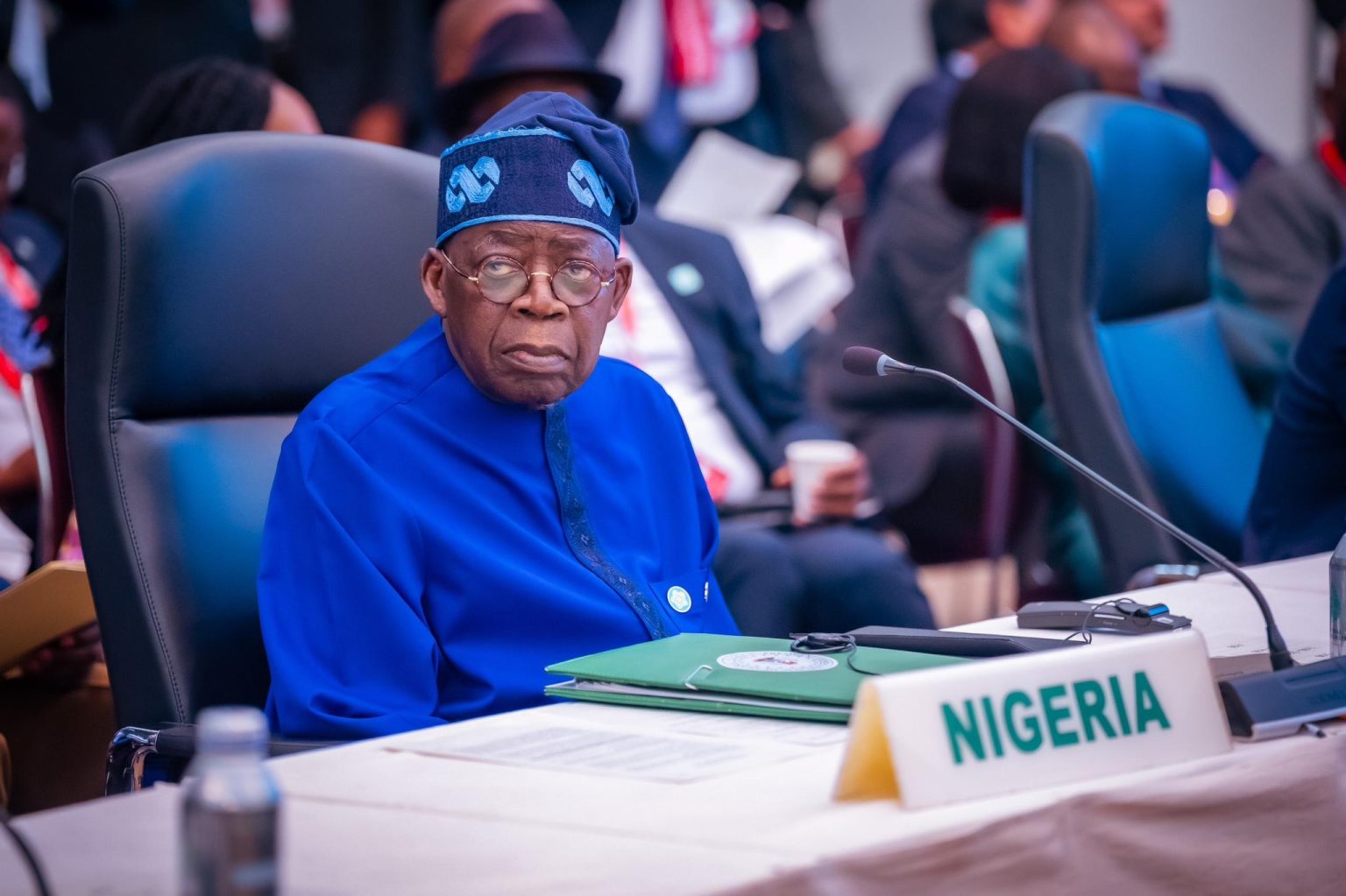Headlines
NASS Has Powers To Adjust Budget Estimates – Court

By Aaron Ossai
The Federal High Court, Abuja, has ruled that the National Assembly has the power to increase – or review upward – budget estimates laid before it by the executive.
This followed a suit by popular advocate, Femi Falana, in which he listed the President, the Attorney-General of the Federation, the National Assembly and the Auditor-General of the Federation as respondents.
The Plaintiff (Falana) had asked the Court to determine four questions whether;
By Section 81 of the Constitution, the National Assembly can increase or review upward any aspect of the estimates of the revenues and expenditure of the Federation for the next financial year prepared and laid before it by the Executive;
By Section 85 of the Constitution, the National Assembly can audit public accounts of the Federation, appoint auditors for statutory bodies or conduct periodic checks of all government statutory corporations, commissions, authorities, agencies, including all persons and bodies established by an Act of the National Assembly in any manner whatsoever and howsoever;
By virtue of sections 88 and 89 of the Constitution, the National Assembly can summon corporate bodies and private individuals while conducting an investigation into any matter, and;
By virtue of section 214 of the Constitution, NASS can probe or investigate the allegations of corrupt practices, fraud, murder and other criminal offences committed in statutory corporations, commissions, authorities, agencies, including all persons and bodies established by an Act of the National Assembly in any matter howsoever.
He, therefore, prayed the court to declare unequivocally that by virtue of the stated sections, the legislative arm cannot increase budget estimates, or audit accounts of the Federation (or appoint auditors to do same), summon corporate bodies and private individuals while conducting an investigation into any matter, or probe/investigate allegations of corruption, fraud, murder and other criminal offenses committed by public officers, corporate bodies and individuals in Nigeria.
He also sought an order of perpetual injunction restraining the Parliament from increasing budget estimates laid before it by the Executive, auditing or appointing auditors to audit accounts of statutory bodies and public accounts of the federation or from conducting periodic checks of the accounts of government statutory corporations, commissions, authorities, agencies, including all persons and bodies established by an Act of the National Assembly, and restraining NASS from probing or investigating allegations of corruption, murder and other criminal offenses committed by public officers, corporate bodies and individuals in Nigeria.
Judge Gabriel O. Kolawole, in his ruling, stated that the questions as posed by Falana’s counsel, bordered on interpretations of the specific provisions of the Constitution which relate to the exercise of the National Assembly’s constitutional legislative powers, and that the essence of the suit is that NASS, under the guise of exercising oversight functions, usurps executive powers; an assertion which the judgment subsequently nullified.
He stressed that the Nigerian Constitution, which is modeled largely after that of the United States, has “as its underpinning principle, the constitutional doctrine of separation of powers”, and that sections 4, 5 and 6 of the Constitution clearly state that the machinery of the government of the federation at both federal and state levels, is predicated on three equal and coordinate arms of government, i.e. legislature, judiciary and executive. He also observed that the drafting of the Constitution makes cooperation between all the arms compulsory, as, by design, none can operate by standing aloof of the others, and his gives rise to the need for checks and balances, which would help prevent dictatorship, as certain powers by an arm of government are subjected to review or ratification by another.
The judge, in his verdict, further noted that the whole purpose of sections 81, 85, 88 and 89 is to ensure that Executive and agencies under its control are subjected to some form of oversight by Parliament, and that since the National Assembly is constitutionally empowered to appropriate funds to be expended for the running of government, it therefore has powers of oversight to ensure those appropriated funds are properly administered.
“The legislature and the executive are subject to the interpretative jurisdiction of the Court as to the constitutionality or otherwise of the exercise of their respective powers”, he said, stressing the fact that it is the Judiciary which has the constitutional responsibility of preventing both arms of government from committing infractions of provisions of the Constitution.
Addressing questions put to the court by Falana, the Judge stated that “the National Assembly was not created by drafters of the Constitution and imbued with the powers to receive ‘budget estimates’ which the first defendant is constitutionally empowered to prepare and lay before it, as a rubber stamp parliament. The whole essence of the budget estimates being required to be laid before Parliament is to enable it, being the Assembly of the representatives of the people, to debate the said budget proposals and to make its own well informed legislative inputs into it.”
With regard to the question concerning the powers of the National Assembly to audit public accounts or appoint auditors, the Judge stated that while the Constitution does not explicitly grant this power, “in so far as that duty is vested in the Auditor-General of the Federation, Parliament still retains legislative oversight powers over the AGF even in respect of these matters.”
On whether legislators can summon private citizens, the Court also ruled that “when Parliament exercises powers to summon private corporate bodies in contrast to public bodies, or where it summons a private citizen, the inquiry it is going to conduct must be such that it is within legislative competence”, i.e. relating to matters contained in the Exclusive Legislative List, on which Parliament can legislate and/or amend existing laws.
On investigative powers, the court ruled that Parliament can, via resolutions, “direct agencies of government to conduct investigations, and where this is done in the legitimate and bona fide exercise of its constitutional legislative powers, to turn its reports to such agencies to aid them in their own investigations with a view, not to merely expose corruption, but to prosecute those found culpable.”
All seven reliefs sought by Falana against the National Assembly were, thus, not granted.
The judge further stated that; “no Court of law created and established pursuant to the provisions of the Constitution, 1999 as amended, in the legitimate exercise of its undoubted jurisdiction as the guardian of the Constitution and on the basis of the doctrine of separation of powers enshrined in the Constitution, can prospectively grant the restraining orders sought by the plaintiff (Falana) against the 3rd Defendant (the National Assembly) as the Legislative Arm of the Government of the Federation.”
The case, with number FHC/ABJ/CS/259/2014, was initiated in 2014, and judgment was issued in March, 2016 and was not appealed by any of the parties.
Headlines
“Nigeria Is in a Hurry to Celebrate Victory Over Enemies of the State,” Says Tinubu as He Decorates New Service Chiefs

By: Fabian Apechihin
President Bola Ahmed Tinubu has urged the newly appointed service chiefs to discharge their duties with utmost dedication and renewed commitment, declaring that “Nigeria is in a hurry to celebrate victory over enemies of the state.”
The President made this statement on Thursday during the decoration ceremony of the new service chiefs with their ranks at the Aso Rock Presidential Villa in Abuja.
Those decorated were General Olufemi Oluyede as Chief of Defence Staff, Lieutenant-General Wahidi Shaibu as Chief of Army Staff, Air Marshal Kennedy Aneke as Chief of Air Staff, and Vice Admiral Idi Abbas as Chief of Naval Staff.
The ceremony was attended by Vice President Kashim Shettima and the spouses of the newly promoted officers, who joined the President in performing the decorations.
In his address, Tinubu underscored the central role of security in fostering national development and reaffirmed his administration’s commitment to protecting the lives and property of all Nigerians.
“Security is an essential element without which everything else becomes meaningless,” the President stated. “There can be no sustainable development if this fundamental need is not met. Our people and our nation must remain secure to enjoy the dividends of governance.”
The elevation and decoration of the new military chiefs followed their confirmation by the National Assembly on Wednesday, after a closed-door screening session with lawmakers.
It will be recalled that, in a recent overhaul of the nation’s military hierarchy, President Tinubu appointed:
- Lieutenant General Olufemi Olatubosun Oluyede as Chief of Defence Staff,
- Major General Waidi Shaibu as Chief of Army Staff,
- Rear Admiral Idi Abbas as Chief of Naval Staff,
- Air Vice Marshal Sunday Aneke as Chief of Air Staff, and
- Major General Emmanuel Undiandeye retained as Chief of Defence Intelligence.
The new appointments mark a strategic restructuring of Nigeria’s security leadership aimed at strengthening the fight against insurgency, banditry, and other threats to national stability.
Headlines
FG Dismisses Coup Rumour, Reaffirms Confidence in Nigerian Military

By: Fabian Apechihin
The Federal Government has dismissed widespread rumours of an alleged military coup plot against President Bola Tinubu, declaring its full confidence in the loyalty and professionalism of the Nigerian Armed Forces.
Minister of Information and National Orientation, Mohammed Idris, made this known in an interview with The Punch on Sunday, insisting that the administration has “no reason whatsoever” to doubt the assurances given by the Defence Headquarters, which had earlier denied reports linking the detention of 16 military officers to a coup attempt.
“The Federal Government has no reason to doubt the military on what it has said,” Idris stated.
“We believe the Armed Forces of Nigeria remain committed to protecting the nation’s territorial integrity and strengthening the fight against insecurity. The government commends their sacrifice and will continue to support them in safeguarding the country.”
The minister’s remarks came a day after the Director of Defence Information, Brigadier General Tukur Gusau, firmly debunked a report by Sahara Reporters alleging that the detention of 16 officers was connected to a failed coup plot and the cancellation of the 65th Independence Day parade.
Gusau described the publication as “false, mischievous, and deliberately aimed at creating unnecessary tension and public distrust.”
He clarified that the cancellation of the October 1 Independence Day parade was a purely administrative decision — taken to allow President Tinubu attend a key bilateral meeting abroad and to enable military units sustain ongoing counterinsurgency operations nationwide.
On the issue of the detained officers, Gusau said their case was “an internal disciplinary process” and not related to any political matter.
“The investigation involving the 16 officers is routine, aimed at upholding discipline and professionalism within the ranks,” he explained. “An investigative panel has been constituted, and its findings will be made public in due course.”
Reaffirming the military’s constitutional role and unwavering commitment to civilian rule, Gusau stressed emphatically:
“Democracy is forever.”
Headlines
FG Moves to Reform Civil Service Disciplinary System for Greater Efficiency

By: Fabian Apechihin
The Federal Government is set to overhaul the disciplinary control system in the civil service to promote efficiency, accountability, and timely resolution of cases.
The Chairman of the Federal Civil Service Commission (FCSC), Prof. Tunji Olaopa, made this known during a one-day joint retreat between the FCSC and the Office of the Head of the Civil Service of the Federation (OHCSF).
In a statement issued on Tuesday by the Commission’s Head of Press and Public Relations, Taiwo Hassan, Olaopa emphasized that the review would drive culture change, value reorientation, and improve the overall disciplinary framework in the public sector.
He likened the relationship between the FCSC and OHCSF to that of “Siamese twins,” noting that both bodies share crucial responsibilities in policy implementation, regulatory enforcement, and leadership across the service.
Olaopa also underscored the need for stronger collaboration and communication between the two institutions to avoid misunderstandings, build trust, and enhance service delivery.
The FCSC chairman further advocated for an integrated system that links merit-based recruitment, competency-driven human resource management, and performance evaluation with the civil service wage structure, saying such reforms would help reposition government as an “employer of choice.”
Speaking on behalf of the Head of the Civil Service of the Federation, Dr. Folasade Yemi-Esan, Esther Walson-Jack praised Olaopa’s reform initiatives, describing the retreat as a renewed commitment to strengthening collaboration and efficiency within the civil service.
The renewed push for reform follows rising concerns about bureaucratic bottlenecks, delayed disciplinary actions, and weak accountability mechanisms in Nigeria’s public administration.
-

 Uncategorized5 years ago
Uncategorized5 years agoFG, states urged to harness flooding for ranching, others with technology – Agbaje
-

 Headlines10 years ago
Headlines10 years agoBreaking: EFCC seals Borno House of Assembly, as Hon members take to their heels
-

 News11 years ago
News11 years agoNigeria Security Operatives Stage Manhunt For Homosexual Perpetrator
-

 News9 years ago
News9 years agoHow 21-year-old Girl fled community over accusation of lesbianism
-

 News10 years ago
News10 years agoYobe Gov Moves Against Deputy
-

 Opinion7 years ago
Opinion7 years ago7 signs she has friend zoned you
-
Technology4 years ago
Online job placement company headhunts women
-

 Headlines10 years ago
Headlines10 years agoBorno Dep Gov Abducts Another Church Leader





